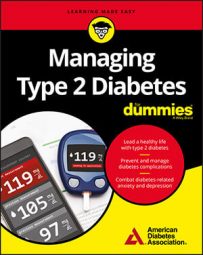The most well-known type of diabetes education is probably a diabetes education class, which is often taught in a group setting by a diabetes educator. However, diabetes education can also refer to annual visits with your healthcare team to assess your needs. You may also be referred for diabetes education if you have complications or changes that affect how you take care of yourself.
As part of diabetes education, you’ll learn about healthy eating strategies. Most people on your healthcare team should be able to answer questions that arise. However, there may be times when you’re referred to a registered dietitian nutritionist or other specialist to learn more.
In addition, you’ll learn coping skills for managing the common emotional concerns that can go along with having a chronic condition. Yet, you may ask for a referral to a mental health professional if you feel like you need additional support.
When do you go?
There are four critical times to take part in diabetes education:- When you’re first diagnosed with diabetes
- During an annual visit with your healthcare team
- If you experience complications (such as change in vision) that affect how you take care of your diabetes
- If you experience transitions (such as a change in your living situation) that affect how you take care of yourself
Diagnosis is perhaps the most critical time to attend a diabetes education class. You’ll learn the basics of taking care of your blood glucose and preventing complications.
Your annual visit with your healthcare team is another opportunity to enhance your diabetes education. Your diabetes care provider will ask you specific questions about how you’re managing your diabetes and whether you need help in specific areas. For example, you may be asked about your insulin regimen or whether you’re incorporating healthy foods into your meals. Your provider may refer you to a diabetes educator, dietitian, or other specialist to focus on learning new skills or changing behaviors.Diabetes education can improve your health. Some studies have shown that diabetes self-management and education can improve A1C by as much as 1 percent.
Complications can arise at any time, so consider these within the context of your everyday care. For example, you may have changes in your health such as kidney disease, a stroke, or a complicated new medication regimen that could impact your diabetes care. You may also encounter changes in your vision, your dexterity, or even your movement that might impact your diabetes care. Don’t discount mental and emotional changes such as anxiety or depression, which can impact your motivation and ability to take care of yourself.If you experience any of these or other complications, talk to your diabetes care provider about how they will impact your daily self-care routine. If you have concerns, ask for a referral to a diabetes educator or other specialist to help manage complications.
Likewise, transitions can occur at any time, and sometimes out of nowhere. For example, your living situation may change and you may now live alone or be moving to an assisted-living facility. Transitions could also occur when your healthcare team changes or when changes in health insurance necessitate a significant medication change. Sometimes, just getting older is enough of a transition to spark a refresh of your diabetes education.Meeting the educator
The most obvious providers of diabetes education are diabetes educators. Diabetes educators are specially trained to help you manage your diabetes. They can help you learn how to take new medications, incorporate new foods into your meals, or start getting more physically active no matter how sedentary you’ve been in the past.When you enroll in a diabetes education class, look for diabetes educators who have one of the following certifications:
- Certified diabetes educator (CDE): This certification is given to a healthcare professional who has sufficiently completed the required number of hours in clinical practice, passed an exam from the National Certification Board for Diabetes Educators, and directly oversees patients in diabetes education. It could be a nurse, pharmacist, dietitian, physician, physician assistant (PA), or other provider.
- Board certified-advanced diabetes management (BC-ADM): The American Association of Diabetes Educators (AADE) offers this certification for advanced level practitioners. A BC-ADM can adjust medications, treat complications, and address psychosocial issues, among other skills.

